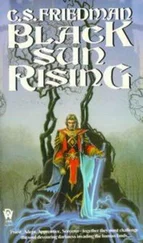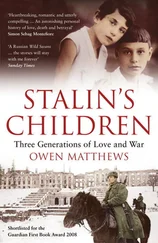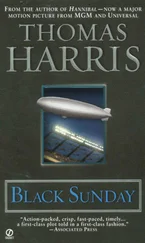To Xenia,
Nikita, and
Teddy
The air-raid siren sounded at dawn. Its rising wail was relayed across the sleeping town by loudspeakers mounted on lampposts, in the corridors of dormitories and barracks, and in the entrance halls of laboratories and workshops. It reverberated from the abandoned church belfry that faced Lenin Square, sending flights of startled pigeons up into the gray October morning. The birds wheeled over the rooftops of the old town center, over the new parks and apartment buildings, over guard towers and the three concentric rings of barbed wire. Finally they flapped over the dark forest that encircled the secret city of Arzamas-16 like a sea.
In the main machine hall, the whining lathes slowed to a whir. Banks of fluorescent lights snapped off, leaving the operators blinking in morning light that filtered through the glass roof. In the parachute workshop, needles nodded to a halt between the seamstresses’ spread fingers. The women straightened stiffly, grateful for the weekly air-raid drill and an early end to their night shift. In the blueprint room, tousled young engineers swept Lucite rulers and set-squares off their drawing tables, rolled plans into long asbestos tubes, and clattered down the stairs toward a row of fireproof safes.
Fifty meters below their feet, a squad of soldiers ran, crooked with sleep, to their battle stations outside the main warhead vault. White-coated men filed out of the bunker chatting, patting pockets for matches and cigarettes. Behind them they left orderly rows of lead canisters stacked in cubicles, a large steel hemisphere sprouting wires, vessels of dull metal as big as bathtubs. Once the last of the scientists had exited, the soldiers hauled the steel blast door shut behind them. Their commanding officer rolled the bolts home with a soft clang.
Alone in its secret vault, deep in the bowels of the All-Union Scientific Research Institute of Experimental Physics, the bomb they called RDS-220 stood alone in silence and darkness.
—
On his blood-soaked sheets, Fyodor Petrov did not stir. He heard the siren’s wail as a rising swell on the furthest edge of his consciousness. All night he had been rafting across a sea of pain, rolled by nausea. Liquid fire was consuming his body.
Now, Petrov saw light. He remembered that light has mass, and exerts pressure. A physical pressure, tiny but measurable. He seemed to feel its particles as they fell on the skin of his face, streaming toward him from the surface of the sun. He tried to rise against the light, but his young body would not obey him. He willed one hand into motion. It jerked spastically as it crawled up his torso. His face was stuck to his pillow. His fingers scraped at a tacky, fibrous mass under his cheek and raised a pinch to his unfocused eyes. His own blond hair, shed in the night, matted with blood and vomit.
“But I can’t die,” Petrov heard his own voice argue. “If I die, I will never know.”
Petrov let his hand drop. Numb darkness spread over him.
He dreamt of fire, consuming the world in a furious tornado. He saw the proud towers of the Kremlin torn from their foundations, disintegrating into ziggurats of dust. He saw boiling seas and bending forests exploding into flame. The whole earth burning, at his command.
The faces of his teachers, friends, and comrades rose before him. They were arguing among themselves, but he could not understand what they were saying. Lost deep inside himself, Petrov felt the outside world dissolve. The flesh that had clung to him so tortuously all night finally fell away. He had become a spirit, rising vertiginously into space with a cold wind rushing on his face. Delivered at last into infinite peace, a billion stars inside his head blazed into light.
The siren stopped. And with it, so did Fyodor Petrov’s weak human heart.
PART ONE
THE CITY THAT DOESN’T EXIST
What do we mean by “understanding” something? We can imagine that this complicated array of moving things which constitutes “the world” is something like a great chess game being played by the gods, and we are observers of the game. We do not know what the rules of the game are; all we are allowed to do is to watch the playing.
—RICHARD FEYNMAN
SATURDAY, 21 OCTOBER 1961
NINE DAYS BEFORE THE TEST
I
The train jerked to a halt, jolting Alexander Vasin out of his crumpled doze. In the opposite corner of the compartment, the dough-faced Party man who had traveled with him from Moscow without a word snored softly on, arms folded across his chest.
Outside, the autumn night was still and moonless. The train had stopped in a no-man’s-land enclosed by two long walls of barbed wire, illuminated by rows of electric lights. A strip of freshly raked sand stretched into the darkness. Somewhere up ahead Vasin could hear the barking of guard dogs.
He breathed in the fragrant silence. This train was like no other he had ever traveled on. The compartment was brand-new soft-class rolling stock. It was redolent of the future: leatherette and Formica and rubber sealant. An automatic ventilator blew warm air gently onto his ankles. Vasin stepped gingerly over the apparatchik’s outstretched legs and pulled open the sliding door.
The trains of his childhood had been like mobile villages, full of chatter, crying, arguments. Lurching theaters of humanity, cluttered with suitcases and leaking bedrolls. But this one was silent, smooth-running, and as hermetic as a spaceship. Only at the vestibule at the end of the carriage did the chilly night air reach in, bringing the familiar train smell of coal smoke and damp grass. Vasin shivered and buttoned his prickly new uniform tunic, retrieving a packet of Orbita cigarettes from the pocket. Orbita: fashionable, hard to find, strong. An apparatchik’s cigarette. Better than he’d been used to.
Vasin straightened his uniform in the glass of the door. He had his father’s high forehead, dark blond hair just starting to recede. He tucked his new spectacles into his top pocket and squinted again, smoothing his hair and flexing his shoulders to fill out the tunic. Bars of rank on his collar, a sword-and-shield emblem on his right breast. Major Vasin, KGB.
From the corridor came a low murmur of voices in another compartment. A muffled dance tune began, midsong, from a radio in the conductress’s cubbyhole. There was a shush of escaping steam and the screech of spinning wheels as the train resumed its motion. It trundled through a floodlit checkpoint into a long barbed-wire cage supported by a timber frame. A pair of barking Alsatians choked on their leads as they stood on their back legs, almost pulling their handlers off their feet.
In the distance the lights of a city appeared, the hard urban crenellations of tower blocks. A single-platform station slid into view.
Vasin hurried back to the compartment, disturbing his companion in the middle of a mighty yawn. He waited in the doorway for the older man to pull on a thick mackintosh and slip a plastic suitcase from the shelf. He gave a curt parting nod as the train slowed to a halt.
Up and down the carriage, compartment doors were sliding open. Vasin wrestled down his large prewar Bakelite case, a prized family possession. He waited for his fellow passengers to pass before he hauled it onto the platform. The young conductress stood by the door smiling, pert and pretty in her uniform coat, her fore-and-aft cap perched on a pile of peroxided hair.
Читать дальше













